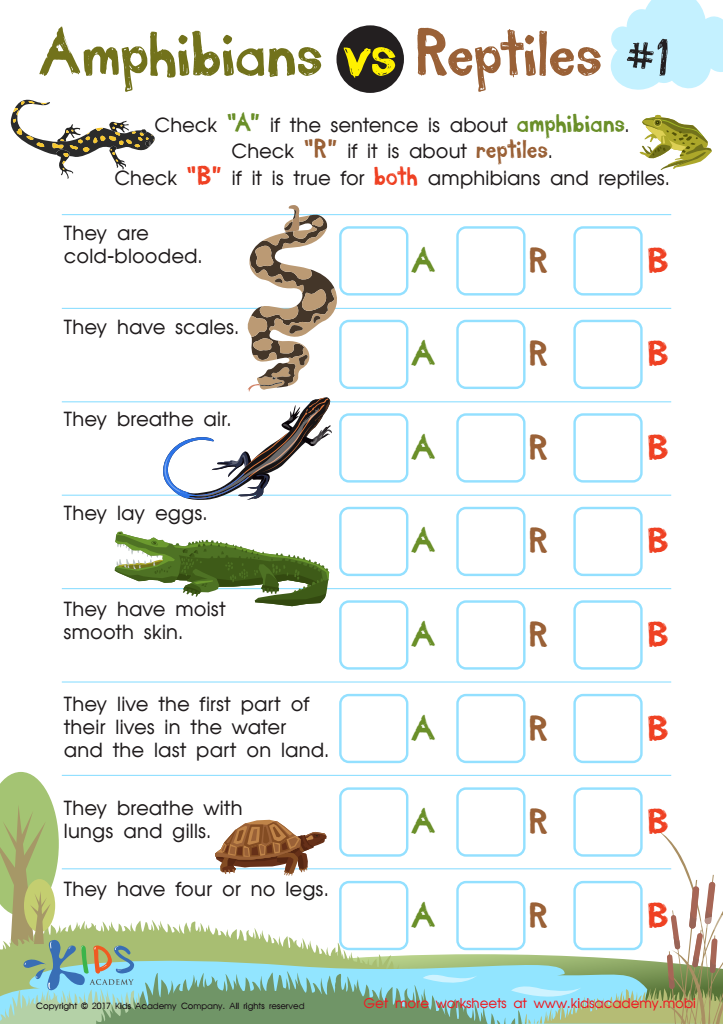Life cycle familiarity Worksheets for Kids
1 filtered results
-
From - To


Amphibians vs Reptiles Worksheet
Question/Answer
Why is the Life cycle familiarity skill important for Grade 3 students?
The Life cycle familiarity skill is important for Grade 3 students because it helps them understand the natural world, including how plants and animals grow, reproduce, and change. This foundational knowledge fosters curiosity, encourages scientific thinking, and promotes environmental awareness. It also supports learning in other subjects by teaching critical observation and comparison skills.
What does the Life cycle familiarity skill mean when it comes to Grade 3 Life Science learning?
The Life Cycle Familiarity skill in Grade 3 Life Science involves understanding the stages of development that living organisms, such as plants, animals, and insects, go through from birth to adulthood. This includes recognizing the sequences of life cycles, such as those of a butterfly or a frog, and grasping the concept of growth and change over time.
How does the mastery of the Life cycle familiarity skill affect a student's performance at an early age?
Mastery of the Life Cycle Familiarity skill at an early age significantly enhances a student's understanding of biological processes and environmental science. It fosters a deeper appreciation for nature and life forms, encourages curiosity, and improves critical thinking skills.
 Assign to the classroom
Assign to the classroom












